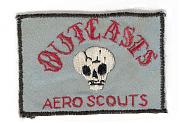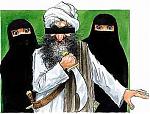The guy I've heard that is the likely pick is the current ACC commander, Gen. Corely, another fighter guy.
I also agree to an extent with Tom about the "larger setting." I think they would have been fired regardless, but all the other stuff just made it that much easier.















 ...
...
Bookmarks